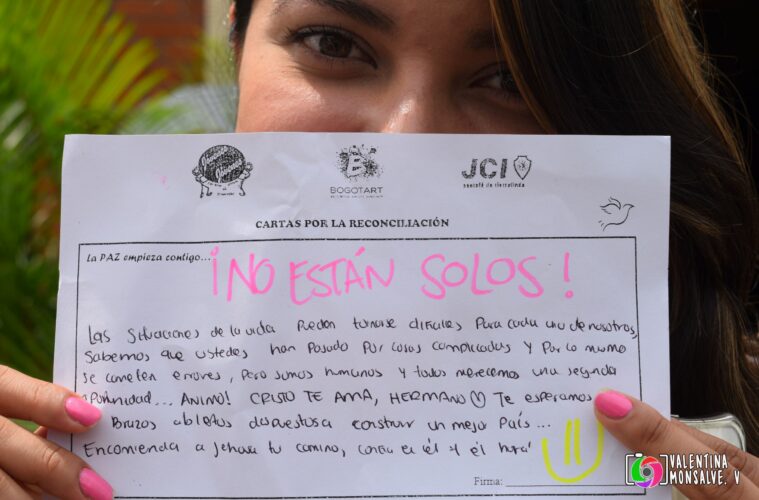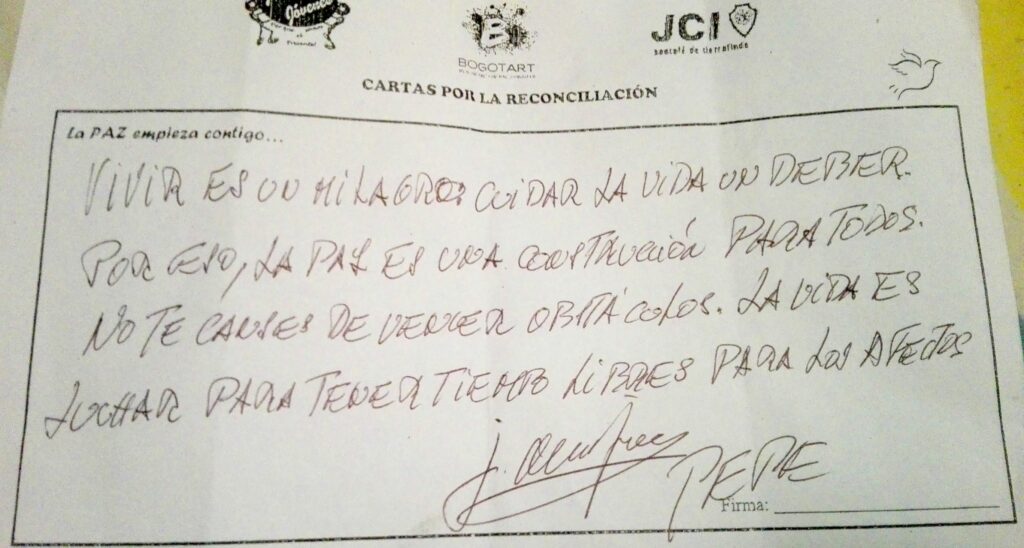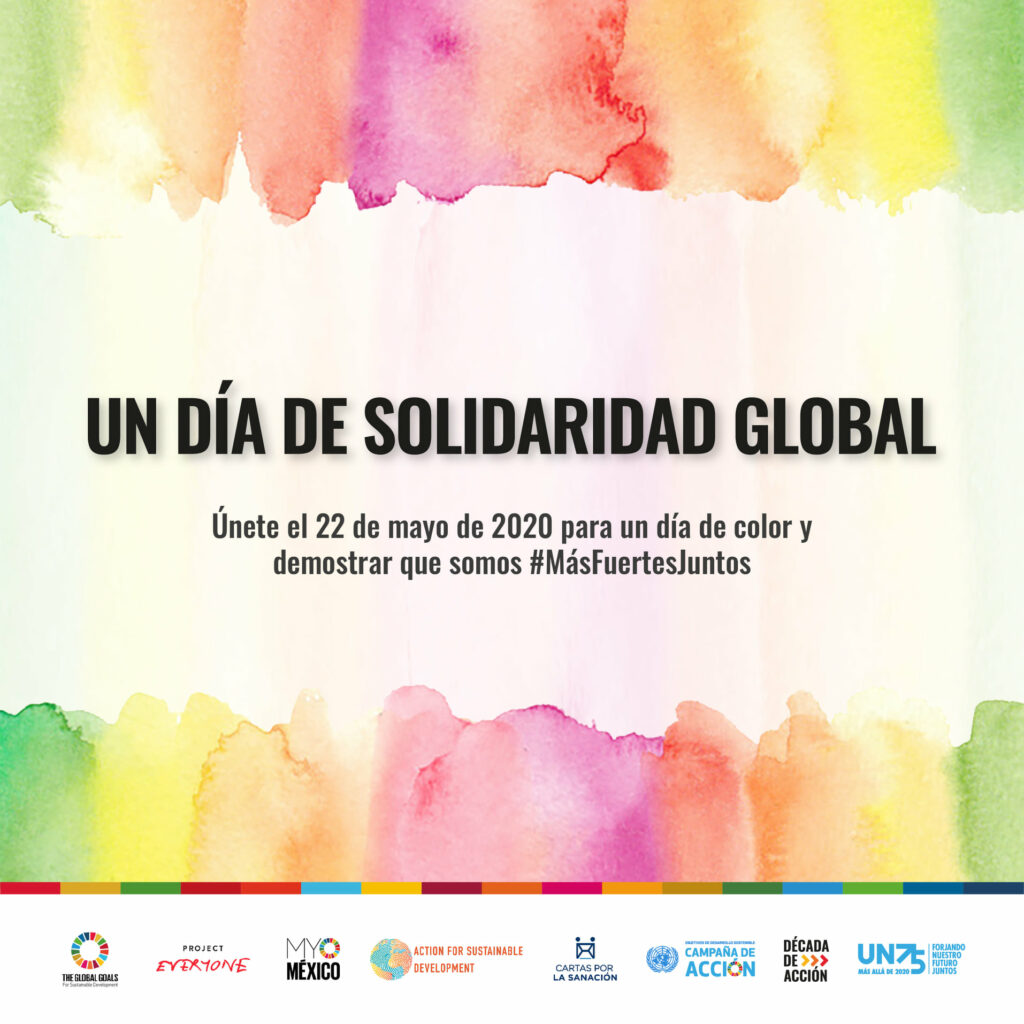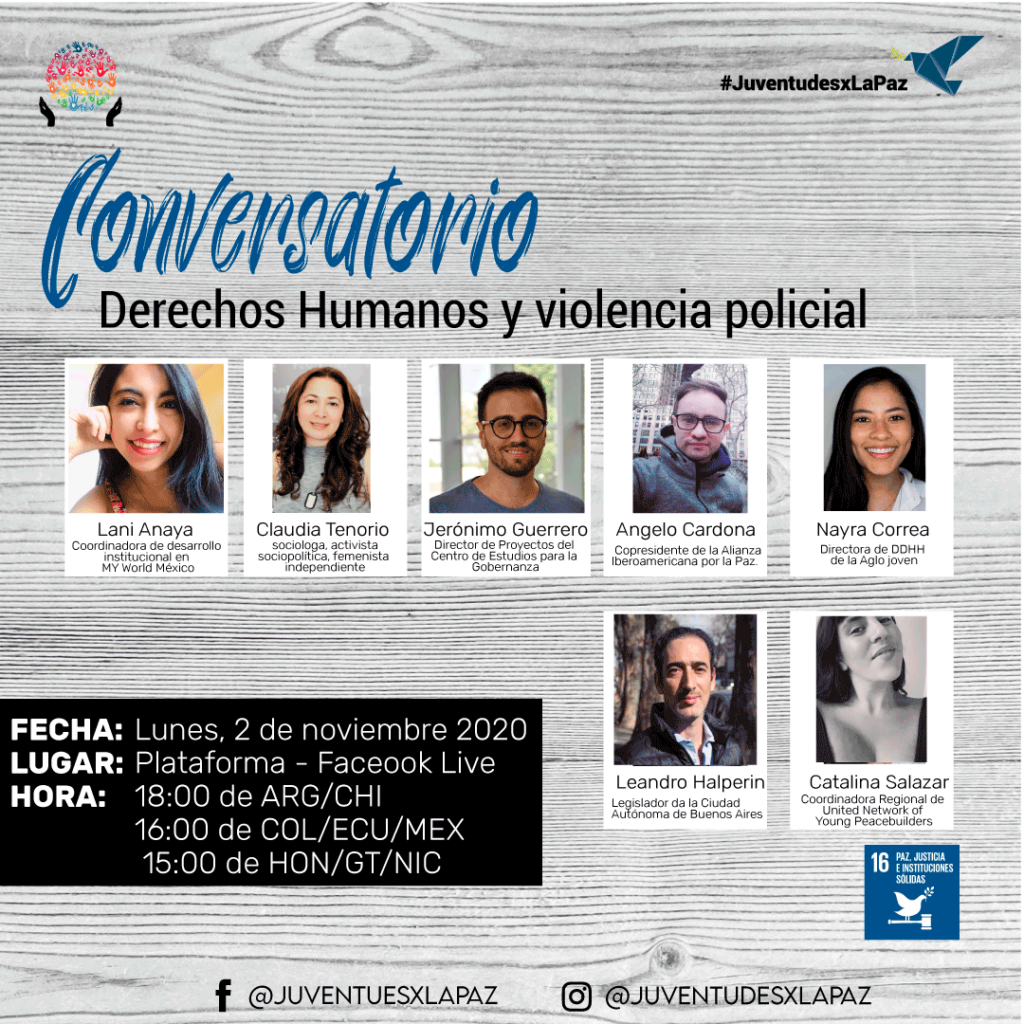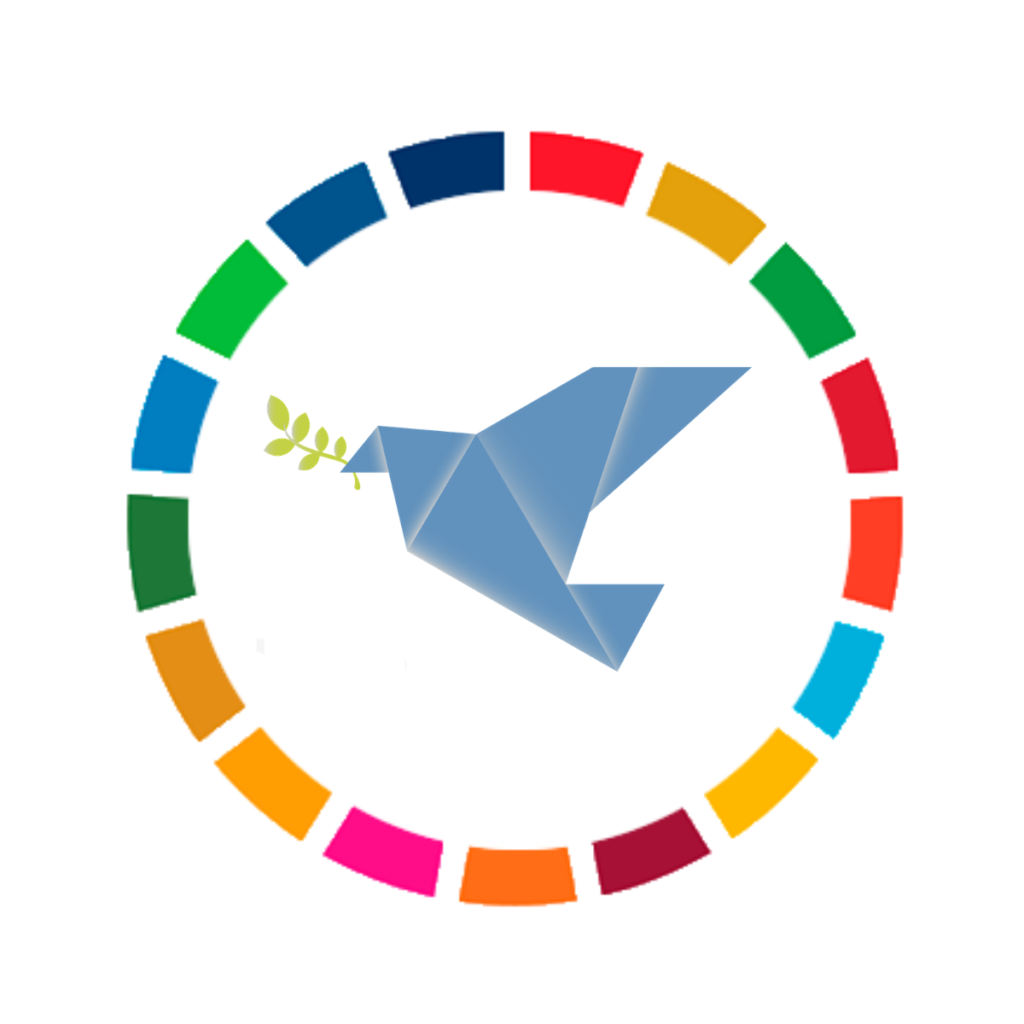by: Lani Anaya, Leonardo Párraga, Monserrat Irazoqui & Yuliana PérezM
Letters for Healing is an initiative that has allowed us to re-discover the wonderful power of writing and receiving messages as a way of mutual support, no matter who and where it comes from. It has gone beyond the limited possibilities of interaction during the COVID-19 lockdown by spreading messages of empathy and solidarity.
2020 has been a turning point for our entire planet. Humankind’s misled management of economic, social and environmental resources have led to this pandemic that is affecting all, yet not impacting everyone in the same way. Besides health-related challenges, we are experiencing a necessary wakeup call. It makes us explore and evaluate the things that we, consciously or not, do, feel and “offer” to the human species and the whole planet. The same storm that had a magnanimous impact on social, economic, and environmental spheres has also become the perfect setting for Cartas por la Sanación (Letters for Healing), a global movement based on messages of solidarity, respect and empathy.
We believe that exchanging messages during this pandemic can contribute to the creation of a more conscious, supportive and peaceful interaction in challenging times. This starts with daily and simple actions of mutual understanding and moves towards generating sensitivity on the importance of small but effective actions to preserve mental, physical, and social well-being. We understand that the global COVID-19 pandemic is everyone’s business. Therefore, it is important to stay together rather than acting separately in order to deal with this difficult situation.
The Healing Power of Letters
Why letters in the middle of a global crisis? Because physical distance does not mean that we have to be socially isolated. We are experiencing a time where we recognize that we depend on each other. There are people all around the world who, in the course of the pandemic, have been affected by unemployment, health problems, death, isolation and depression. All these factors have a drastic effect and make humans feel under pressure, as if they were in the middle of a shrinking room, with no possibility of escape. This situation touches the very essence of humanity and the very essence of what it means to be alive. Because of this, our team realized the need to take action. We were wondering if, in the midst of a chaotic situation, someone, somewhere in the world, was willing to listen to us, read us, understand us and connect with us, and exchange on the difficult situation all of us are experiencing.
Through a message of love, empathy and solidarity, the creation of a healing environment can be encouraged. This environment promotes empathy for the experiences of other people and how they are affected by the pandemic. A letter is a simple tool that allows extending solidarity to those who are most affected by suffering, fear, pain or rejection and need support. We started a call to action and created a powerful channel of love where each message is a call to build peace collectively based on the Ubuntu principle: ‘I am because you are’ – “I’m healthy and I’m fine because you’re fine and healthy” and also “I am not doing well because you are experiencing a struggle”.
A letter is a simple tool that allows extending solidarity to those who are most affected by suffering, fear, pain or rejection and need support.
Thus, this initiative aims to promote healing while facing a state of alarm on different levels. This state unites us as humanity, but also distances us by generating wounds due to lack of empathy, equality and equity. COVID-19 has exposed the wounds we suffer from physical sickness, when the stability of our life is affected, or simply when fear takes over and does not allow us to express what we feel. Healing through empathy, respect and solidarity makes us aware that we are all the same, while keeping in mind that each one is unique, unrepeatable. Hence, by putting myself in someone else’s shoes and writing a letter has a chain-effect. The sender’s heart is healed from the lack of empathy and solidarity and the one who receives it heals from feelings and emotions that came from the struggle that they have gone through. The whole process of the letter becomes a vehicle for expressing support and understanding.
There is a powerful healing process when it comes to writing, sending and receiving a message. Just imagine the possibility that someone in another part of the world tells you that, even though they are not in your place, they acknowledge how you feel about what you are living and offer solidarity as support. As a matter of fact, the letter process does not end there. The writer shares their perception so that you can adopt measures and improve your situation. It is a process that is transversally accompanied by love for humanity. With Letters for Healing, we hope to promote a “pay it forward” movement, which can be replicated in any society. We are convinced that by empowering people, particularly youth leaders, we can encourage them to promote a letter-oriented methodology. That is a way to replicate this project without the need of a vertical structure. This friendly methodology is easy to follow and allows the letter spirit to continue running and promoting empathetic and solidarity-focused messages in the current sanitary crisis and the post-pandemic world we will face as humanity.
Project story
Letters for Healing was inspired by an initiative called Reconciliation Letters, which was designed by Leonardo Párraga, who is now one of the core team members of Letter for Healing. After the signature of the Peace Accords in Colombia in 2016, Leonardo and our team member Yuliana were part of a working group that was dedicated to generating awareness on the reintegration process of former guerrilla fighters, who surrendered their arms, into society. The letters were written by citizens and the recipients were ex-combatants of the FARC (Revolutionary Armed Forces of Colombia). The working group planned periodic sessions to enable a dialogue where young people could talk with the ex-combatants and thereby reinforce their good feeling about the decision to surrender their arms and to reintegrate into the Colombian society.
This initiative managed to cover more than 10 cities in Colombia, collecting more than 699 letters and consequently visiting three ZVTN (Transitory Neighborhood Normalization Zones) for their respective deliveries, where the people, who were part of the demobilization process, lived. From Latin American presidents such as José “Pepe” Mujica in Uruguay to the members of society, many people from different backgrounds sent messages of support to the ex-combatants and welcomed them as members of the Colombian society. Reconciliation Letters was recognized for having a positive impact and awarded at national and international level.
Based on the success of Reconciliation Letters, the project team met digitally and discussed how to retake the project by redesigning the approach to the current pandemic context. Together, they released Letters for Healing as a regional digital initiative. Via social media, people could send positive messages to the frontlines of this emergency that changed everyone’s lives so rapidly. The letters were meant to encourage those brave humans who, despite fear and emotional breakdowns, were giving the best of themselves to society. The idea was to support healthcare staff, sanitary and essential services workers and families or individuals impacted by COVID-19.
Activities
The first groups to send letters were university students, youth, and church members. The messages were impacting the recipients beyond the initial expectations. One doctor wrote back to us to say how positive these messages had become for him being at the frontlines of this crisis. Furthermore, he asked us to share the messages with all his colleagues at one hospital in Mexico City. People who were in confinement also replied to thank the powerful messages from unknown people and how these actions increased hope amidst times of depression.
The letters are proof of what the team dreamed of when starting this healing movement and bringing it to a global level. They transmit wonderful messages written from a position of respect, solidarity, empathy and love. Moreover, they reflect that simple actions can make a difference in someone’s life, although sometimes we cannot imagine that our words are making a difference. They can expand, like waves made by a stone that is thrown into water.
Simple actions can make a difference in someone’s life.
Place yourself in the shoes of the healthcare staff. Imagine that you are a doctor who has been in the emergency room for 24 hours, attending cases, putting your service over the health risks for you and your family. You feel fear, but it is your duty to be at the hospital, attending people with COVID-19, talking to their families. What would be the impact of receiving a message of hope? Would your perception change? Would it be an additional incentive to continue at the frontlines of the pandemic and risk their own well-being to help others? We think: Yes – this is the power of healing messages.
Global Relevance & Potential
Letters for Healing partnered with MY World Mexico so that the healing messages could reach a larger audience. For the „Solidarity Day campaign“, we gathered more than 400 videos, poems, drawings and letters, all of them supporting messages from kids to older people, and those at the frontlines and both direct and indirect victims of the pandemic.
The movement has been replicated in countries around the globe, for example in Egypt, the Netherlands and Colombia, where there has been support from different international organizations. This resulted in the expansion of the coverage of the public to whom it is directed, generating the possibility of association with other initiatives, networks and organizations regardless of the isolation we go through. Setting as a precedent that, when working together for a common good, there are particular interests that can be united and it is only a matter of generating spaces for participation that allow ideas to be shared and supported.
For our team, it is very satisfying to know that the majority of those interested in replicating this movement are young people from different countries, active agents of change, willing to be ambassadors of peace, who contribute to healing their societies. The replication of our methodology among youth-focused organizations influenced the foundation of the Juventudes x la Paz (Youth for Peace) network in Latin America. Despite limited face-to-face encounters, our initiative became a catalyst for collaborative work among more than 30 youth-focused organizations that aim to shift youth narratives from troublemakers to agents of change at the local, national and regional levels. We place our trust in the replication of this movement in their hands, because we are convinced that they are the presence of society, and those responsible for replicating and empowering the communities in which they live together in order to heal from failures, inequalities and injustices. This way, youth networks can empower the following generation to build solidarity and contribute to a more peaceful and empathetic society.
More information can be found here:
- Facebook https://www.facebook.com/cartasporlasanacion/
- Instagram (Spanish) https://www.instagram.com/cartasporlasanacion/
- Instagram (English) https://www.instagram.com/lettersforhealing_global/
About the Authors
Lani Anaya is a Mexican practice-based research expert in peace and development. She loves supporting local, national and international projects related to youth and gender inclusion in peacebuilding, ecumenism and the 2030 Agenda. Lani holds a BA in International Relations from UNAM, a MSc in Peace and Conflict Studies from Uppsala University, and a MA in Ecumenical Studies from the University of Geneva and the University of Bonn.
Leonardo Párraga is an activist working at the intersection of community building, human connection and appreciation of the present moment to improve society’s well-being. He is the founder of BogotArt and Digital Youth Engagement Officer at the CIVICUS Alliance. He holds a BA from Universidad de los Andes and a MA in International Policy from Harvard University.
Monserrat Irazoqui is a digital marketing specialist who is focused on using her skills for the greater common good. She is a communicator and actively participates in PeaceJam, a global network for young peacebuilders. She holds a BBA with a major in Marketing from the Hult International Business School.
Yuliana PérezM is a project manager with a focus on social impact and transformational leadership. Throughout her experience, she has inspired others to live fully and give the best of themselves in every moment. Yuliana is part of the board at JCI, a youth volunteer network with global impact. She holds a MA in International Studies with a major in organizations and cooperation from the University of Barcelona.

